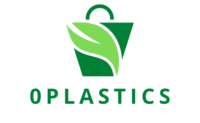The rise of plastic-free products has sparked a profound transformation in supply chains across various industries. As consumers increasingly seek eco-friendly alternatives, businesses are compelled to reevaluate their sourcing, production, and distribution processes. This article delves into the impact of plastic-free products on supply chains, exploring the challenges and opportunities that arise as the marketplace shifts towards sustainability.
1. Sustainable Sourcing Challenges:
Plastic-free products often require alternative materials, and sustainable sourcing becomes a critical aspect of the supply chain. Businesses must navigate challenges such as identifying reliable suppliers of eco-friendly materials, ensuring ethical practices, and maintaining consistent quality. The demand for sustainable sourcing encourages transparency and accountability throughout the supply chain.
2. Integration of Circular Economy Practices:
The shift towards plastic-free products aligns with the principles of the circular economy, where products are designed with reuse and recycling in mind. Supply chains need to adapt by integrating practices that support product recyclability, promote closed-loop systems, and minimize waste generation. This transition prompts a reevaluation of traditional linear supply chain models.
3. Innovation in Packaging:
Plastic-free products often necessitate innovative packaging solutions. Supply chains are exploring alternatives such as compostable materials, minimalistic designs, and refillable options. This shift requires collaboration with packaging manufacturers and the implementation of new technologies to ensure that the chosen packaging aligns with sustainability goals while maintaining product integrity.
4. Responsiveness to Consumer Trends:
The growing demand for plastic-free products reflects changing consumer preferences. Supply chains must become more agile and responsive to these trends, adjusting production volumes, diversifying product offerings, and adopting sustainable practices to meet evolving consumer expectations. Proactive responsiveness to market trends is crucial for maintaining competitiveness.
5. Logistics and Transportation Optimization:
The transportation of plastic-free products introduces new considerations into logistics strategies. Businesses are exploring ways to optimize transportation methods, reduce carbon footprints, and minimize packaging waste during shipping. This includes evaluating the use of eco-friendly packaging materials and adopting more efficient distribution practices.
6. Collaboration with Sustainable Suppliers:
The emphasis on plastic-free products necessitates collaboration with suppliers who share a commitment to sustainability. Building partnerships with suppliers that prioritize ethical practices, environmental responsibility, and innovative solutions strengthens the entire supply chain. This collaborative approach ensures a unified commitment to reducing the environmental impact of products.
7. Consumer Education Initiatives:
Supply chains play a crucial role in supporting consumer education initiatives. Businesses are investing in educating consumers about the benefits of plastic-free products, the environmental impact of their choices, and how sustainable practices are integrated into the supply chain. Transparent communication helps build trust and fosters informed decision-making.
8. Adoption of Technology for Traceability:
Traceability is a key consideration in ensuring the authenticity of eco-friendly claims. Supply chains are leveraging technology, such as blockchain, to enhance traceability and transparency. This technology allows consumers to trace the journey of products from sourcing to production, instilling confidence in the sustainability of the supply chain.
9. Redefining Quality Standards:
The introduction of plastic-free products prompts a redefinition of quality standards within supply chains. Businesses must balance traditional quality metrics with new criteria related to sustainability, recyclability, and environmental impact. This shift requires ongoing evaluation and adjustment of quality assurance processes.
10. Market Differentiation and Brand Value:
Supply chains are recognizing the value of aligning with sustainability goals to differentiate products in the market. By integrating plastic-free alternatives, businesses enhance their brand value, appeal to environmentally conscious consumers, and position themselves as leaders in the shift towards sustainable practices. This differentiation can be a significant competitive advantage.
In conclusion, the adoption of plastic-free products is reshaping supply chains, challenging businesses to embrace sustainable practices and innovate across various aspects of their operations. While presenting challenges, this transformation offers an opportunity for businesses to enhance their resilience, build consumer trust, and contribute to a more environmentally sustainable future. As supply chains continue to evolve, the integration of plastic-free alternatives is becoming a driving force for positive change across industries.
